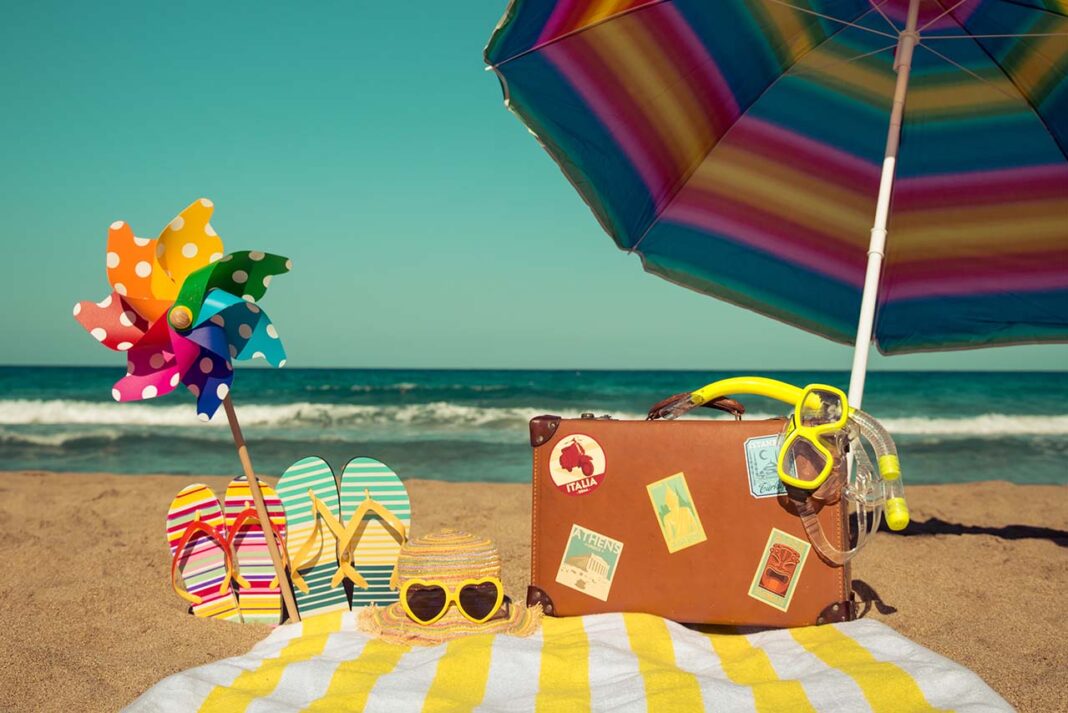Now that summer is over, the suitcases are unpacked and the photos are shared. As the city slowly picks up pace, we are getting back to work or school. But did the vacation feel good?
Most of us feel lighter when we return from vacation; calmer, more pleasant, more energetic. But this feeling usually does not last long. Within a few days, between meetings, homework, and traffic, we are back to our old tiredness. But is it just how we feel, or does science say the same thing?
The Immediate Impact of Vacation
A comprehensive study conducted in the Netherlands sought a clear answer to this question (de Bloom, Geurts, & Kompier, 2013). Participants took an average of 23 vacation days, and researchers assessed their health, fatigue, satisfaction, mood, tension, and energy levels before, during, and after the trip.
The results are very familiar: Well-being levels start to increase immediately after the vacation begins. There is a noticeable improvement, even in the first four days, with a peak on day 8. This period is the core phase of the vacation, during which mood was at its brightest (Strauss-Blasche, Ekmekcioglu, & Marktl, 2000). That is why many people say that they feel the real vacation in the middle.
Post-Vacation Decline
Unfortunately, these effects are not permanent. In the first week back at work, well-being levels return to pre-vacation levels (de Bloom et al., 2009; Westman & Eden, 1997). In other words, the vacation provides a brief but significant energy boost. Scientific data support the vacation-over syndrome many of us experience on Monday mornings (Nawijn, Marchand, Veenhoven, & Vingerhoets, 2010).
But there is an interesting detail: Participants who took extended vacations reported feeling better even four weeks after their vacation (Lounsbury & Hoopes, 1986; de Bloom et al., 2013). This finding suggests that the only advantage of duration is that it can prolong the effect of the vacation a little longer.
What Determines the Impact?
It is the content of the vacation that makes the real difference. The more time participants spent on social activities, relaxation, and doing things they enjoy, the greater the impact of the vacation (Fritz & Sonnentag, 2006; Nawijn et al., 2010). In other words, the benefit of vacation is not just about getting away but about how people experience it.
Time spent with family, meetings with friends, or shared experiences provides the most significant gains (Westman & Eden, 1997). Sleep, hours spent doing nothing, and simple pleasures have a powerful effect on mental health and recovery (de Bloom et al., 2013).
Theoretical Framework
These findings are consistent with the Broaden-and-Build Theory (Fredrickson, 2001). According to the theory, positive experiences open our minds and strengthen creativity, social bonds, and problem-solving skills. The optimism we feel on vacation expands our mental resources.
In addition, Self-Determination Theory (Ryan & Deci, 2000) emphasizes that the sense of autonomy and social bonds experienced on vacation support long-term well-being.
So What Can We Do?
Science says: Yes, vacations are good for you. However, this is primarily for a short time. This does not imply that vacations are worthless; instead, it demonstrates how greater benefits can be derived from them (de Bloom et al., 2013). Bringing the spirit of vacation into everyday life is the most important way to prolong its effects.
To achieve this, we can:
-
Prioritize taking small breaks.
-
Invest in social connections.
-
Make time for personal pleasures.
Adapting vacation sleep patterns to city life supports the body’s recovery and mental health (Harma, 2006).
In conclusion, the power of vacation lies not only in the days spent at the seaside but also in the ability to bring the serenity of those days into our busy lives. Whether your vacation is 4 days or 3 weeks, spending quality time with your loved ones, creating space for yourself, and prioritizing the things that bring you joy contribute to your mental health. The most important thing is to regard the vacation not as a finished memory, but as a state interspersed in everyday life.
References
-
Belkic, K., Landsbergis, P. A., Schnall, P. L., & Baker, D. (2004). Is job strain a major source of cardiovascular disease risk? Scandinavian Journal of Work, Environment & Health, 30(2), 85–128. https://doi.org/10.5271/sjweh.769
-
de Bloom, J., Geurts, S. A. E., & Kompier, M. A. J. (2013). Vacation (after-) effects on employee health and well-being, and the role of vacation activities, experiences and sleep. Journal of Happiness Studies, 14(2), 613–633. https://doi.org/10.1007/s10902-012-9345-3
-
de Bloom, J., Kompier, M., Geurts, S., de Weerth, C., Taris, T., & Sonnentag, S. (2009). Do we recover from vacation? Meta-analysis of vacation effects on health and well-being. Journal of Occupational Health, 51(1), 13–25. https://doi.org/10.1539/joh.L8020
-
Fredrickson, B. L. (2001). The role of positive emotions in positive psychology: The broaden-and-build theory of positive emotions. American Psychologist, 56(3), 218–226. https://doi.org/10.1037/0003-066X.56.3.218
-
Fritz, C., & Sonnentag, S. (2006). Recovery, well-being, and performance-related outcomes: The role of workload and vacation experiences. Journal of Applied Psychology, 91(4), 936–945. https://doi.org/10.1037/0021-9010.91.4.936
-
Harma, M. (2006). Workhours in relation to work stress, recovery and health. Scandinavian Journal of Work, Environment & Health, 32(6), 502–514. https://doi.org/10.5271/sjweh.1055
-
Lounsbury, J. W., & Hoopes, L. L. (1986). A vacation from work: Changes in work and nonwork outcomes. Journal of Applied Psychology, 71(3), 392–401. https://doi.org/10.1037/0021-9010.71.3.392
-
Nawijn, J., Marchand, M. A., Veenhoven, R., & Vingerhoets, A. J. J. M. (2010). Vacationers happier, but most not happier after a holiday. Applied Research in Quality of Life, 5(1), 35–47. https://doi.org/10.1007/s11482-009-9091-9
-
Ryan, R. M., & Deci, E. L. (2000). Self-determination theory and the facilitation of intrinsic motivation, social development, and well-being. American Psychologist, 55(1), 68–78. https://doi.org/10.1037/0003-066X.55.1.68
-
Strauss-Blasche, G., Ekmekcioglu, C., & Marktl, W. (2000). Does vacation enable recuperation? Changes in well-being associated with time away from work. Occupational Medicine, 50(3), 167–172. https://doi.org/10.1093/occmed/50.3.167
-
Westman, M., & Eden, D. (1997). Effects of a respite from work on burnout: Vacation relief and fade-out. Journal of Applied Psychology, 82(4), 516–527. https://doi.org/10.1037/0021-9010.82.4.516


